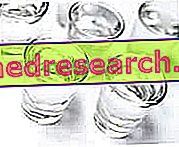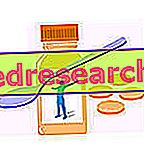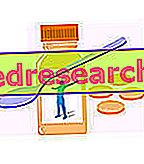Definition
Narcolepsy is a chronic neurological disorder that causes sudden sleep attacks during the day. Individuals with this disease can fall asleep at any time, even if they are engaging in activities, such as working or talking.
Furthermore, once narcolepsy develops, it persists throughout the patient's life. It appears, therefore, clear how this disease can negatively affect the lives of patients who suffer from it.
Causes
The exact cause of narcolepsy has not yet been completely identified, but it seems that a genetic predisposition is necessary to make it develop. In addition to genetic factors, it also appears that the intervention of environmental factors may also favor the appearance of the pathology.
Symptoms
As mentioned, narcolepsy patients experience repeated and sudden sleep attacks during the day. Moreover, it often happens that narcolepsy is accompanied by cataplexy, that is by a sudden and transient loss of muscle tone, similar to that which occurs during REM sleep.
Other symptoms that can occur are asthenia, sleep hallucinations, sleep disturbances or insomnia, sleep paralysis, depression and difficulty concentrating.
The first symptoms of narcolepsy may occur following pathologies, traumatic events, stress or following sleep deprivation. In other cases, however, the symptoms may arise spontaneously in patients, even in the absence of pre-existing pathologies or traumas.
Information on Narcolepsy - Drugs for the Treatment of Narcolepsy is not intended to replace the direct relationship between health professional and patient. Always consult your doctor and / or specialist before taking Narcolepsy - Narcolepsy Drugs.
drugs
Unfortunately, there are no specific drugs for the treatment of narcolepsy. The available pharmacological therapies aim to reduce the symptoms and improve the quality of life of the patients who suffer from it.
First of all, it is recommended that patients always lie down at the same time and sleep at least eight hours a night, so as to give regularity to sleep at night. To prevent fatigue, then, it is advisable to take several naps lasting 15 minutes throughout the day. It is also advisable to carry out regular physical activity and to adopt a balanced diet, avoiding too heavy meals and alcohol. Alongside these behaviors, the doctor can prescribe drugs to stimulate the central nervous system, so as to counteract sleepiness, and drugs to combat cataplexy.

Modafinil
Modafinil (Provigil ®) is a drug capable of stimulating the central nervous system, which works by increasing the release of different types of neurotransmitters, including histamine.
Modafinil helps maintain alertness, which is why it is useful in the treatment of narcolepsy and associated symptoms.
The dose of drug usually administered in adults is 200 mg a day, to be taken in a single dose in the morning, or in two divided doses (one in the morning and one at noon).
In elderly patients and in patients with hepatic and / or renal diseases, the usual dose of medication is lowered to 100 mg a day.
methylphenidate
Methylphenidate (Ritalin ®) is a drug that is normally used to treat attention deficit hyperactivity disorder (ADHD), but can also be used to treat daytime symptoms typical of narcolepsy. In fact, methylphenidate is able to perform a stimulating action on the central nervous system. The amount of drug to be used will be established by the doctor on an individual basis for each patient.
Sodium oxybate
Sodium oxybate (Xyrem ®) is a drug used for the treatment of cataplexy that is often associated with narcolepsy.
The dose of sodium oxybate usually administered is 4.5 grams per night, to be taken orally in two divided doses (one before bedtime and one after 2-4 hours).
If the doctor considers it necessary, he can decide to increase the amount of the drug up to a maximum of 9 grams per night, to be always taken in two divided doses.
Antidepressants
Some types of antidepressant drugs can also be used to treat narcolepsy. More precisely, they are used as off-label drugs against cataplexy.
The term "off-label" refers to the use of drugs known and already used for a long time, for which scientific evidence suggests their use in clinical situations not expressly approved and reported on the illustrative leaflet of the drug itself.
In fact, in Italy, antidepressants do not have specific therapeutic indications for the treatment of narcolepsy, but - since their use seems to help patients suffering from this disease - they are used, precisely, as off-label drugs.
Among the most commonly used active ingredients, we recall:
- Clomipramine (Anafranil ®): clomipramine is a drug belonging to the class of tricyclic antidepressants. It is available in different pharmaceutical formulations suitable for different administration routes. When administered orally, the dose of clomipramine usually used is 25 mg 1-2 times a day, or according to a medical prescription. Subsequently, the doctor may decide to gradually increase the dosage, up to a maximum of 200-250 mg of active ingredient per day.
- Fluoxetine (Prozac ®): Fluoxetine is an antidepressant belonging to the class of selective serotonin reuptake inhibitors (otherwise known as SSRIs). This drug is available in different pharmaceutical formulations suitable for oral administration. The dose of fluoxetine usually used is 10-20 mg a day which - if necessary - can be gradually increased. In any case, the exact dosage of medicine must always be established by the doctor on an individual basis.
- Venlafaxine (Efexor ®): venlafaxine is an antidepressant drug belonging to the reuptake inhibitor class of serotonin and noradrenaline (or SNRI). It is available for oral administration. Usually, the starting dose of venlafaxine with which treatment is started is 37.5-75 mg a day. Thereafter, the dose can be gradually increased up to a maximum of 300-375 mg of drug per day. Even in this case, however, the exact amount of active ingredient to be taken must be established by the doctor, depending on the condition of each patient.



